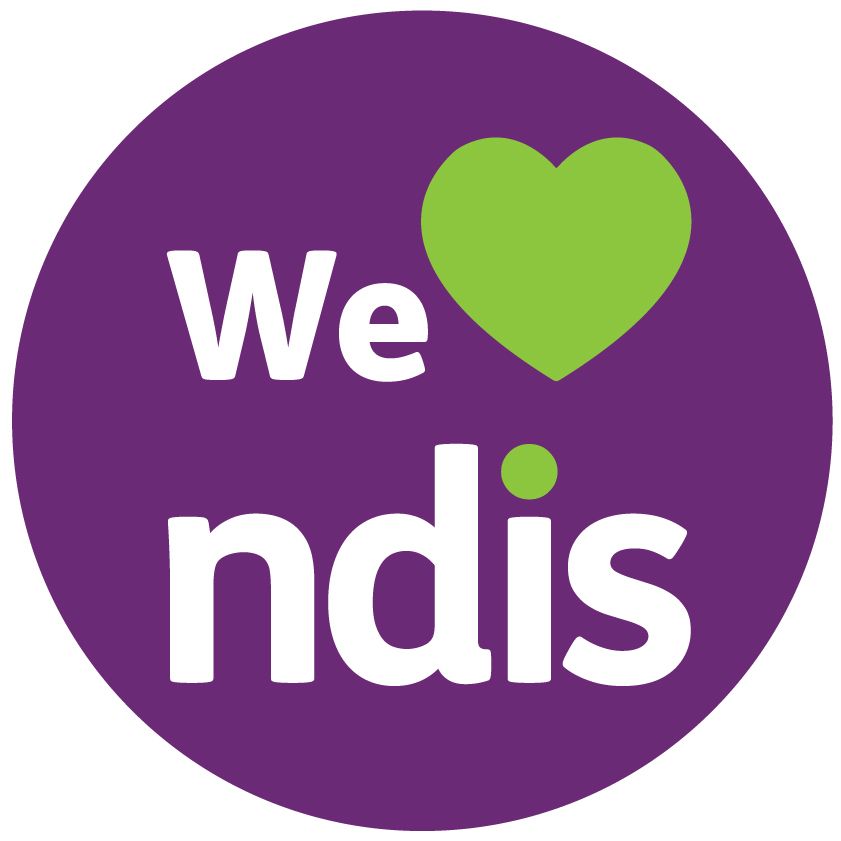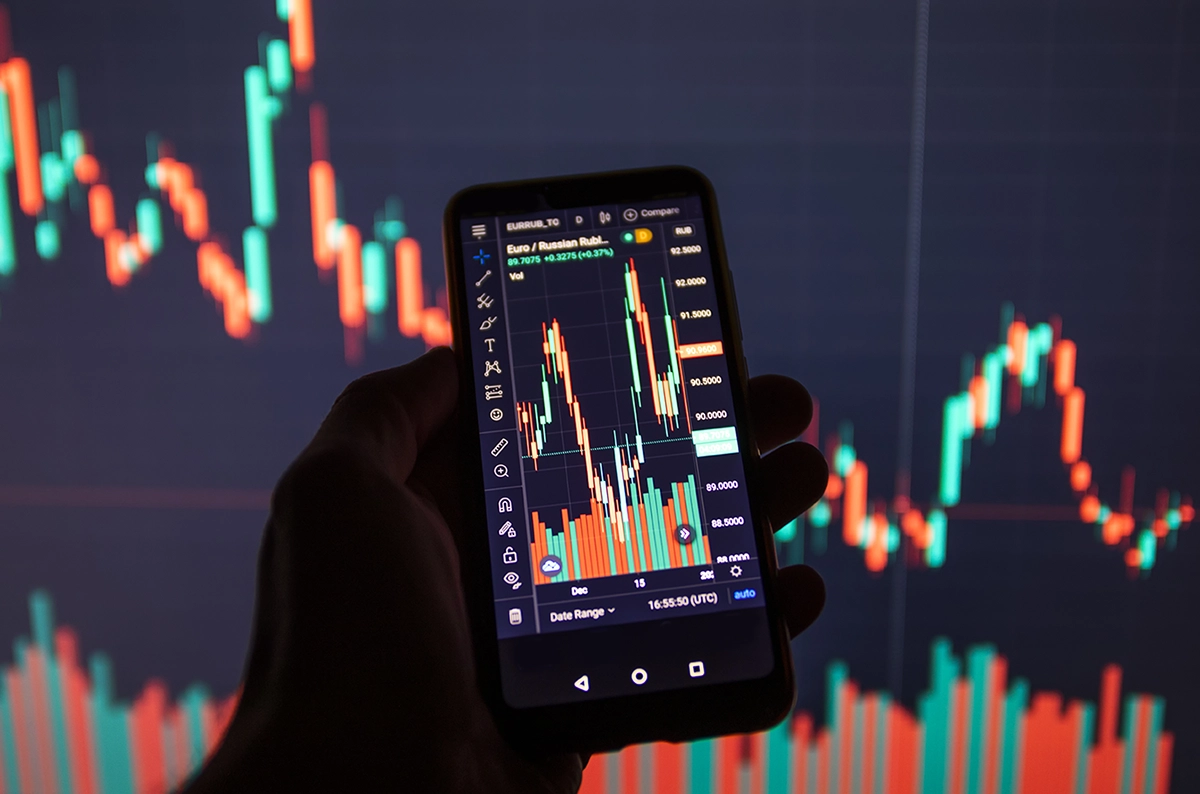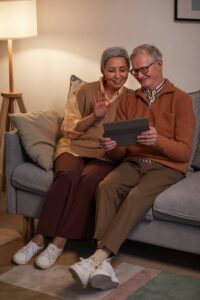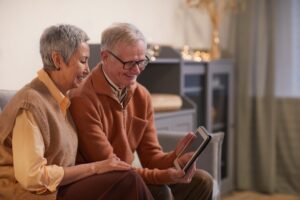Assistive Devices in the Market for the Elderly
As we age, certain tasks can become more challenging for some elderly. However, with the advancements in technology, there are now various assistive devices available (besides Genus Care) that can help make everyday life easier for the elderly. These assistive devices are designed to
enhance independence, improve safety, and promote a better quality of life.
Here are some popular assistive devices for the elderly available in the market:
- Mobility Aids: Mobility can be a common concern for the elderly. Walkers, canes, and wheelchairs are among the most popular mobility devices. These aids provide stability and
support, making it easier for seniors to move around and maintain their balance. Additionally, electric scooters or power chairs can be beneficial for those who need assistance with longer distances. - Hearing Aids: Hearing loss is a common issue for many older adults. Hearing aids are designed to amplify sounds and improve hearing abilities. These devices come in different styles, from behind-the-ear to completely in the ear canal, and are customised to fit each individual’s hearing requirements.
- Visual Aids:As vision deteriorates with age, visual aids can greatly assist the elderly. These aids include magnifying glasses, large print books, and specialised electronic devices that help read texts or identify objects more clearly. Additionally, there are talking watches, clocks, and even smartphones with larger fonts and voice commands available.
- Medication Management Devices: Keeping track of multiple medications and dosage schedules can be challenging for seniors. Medication management devices, such as pill organisers with reminders, automatic pill dispensers, or smartphone applications, can help ensure that medications are taken correctly and on time.
- Emergency Response Systems: Safety is a top priority for older adults, especially for those living alone. Emergency response systems, commonly known as medical alert systems, provide peace of mind by offering immediate assistance in case of emergencies. These systems usually consist of a wearable device and a base unit that connects to a monitoring centre. When help is needed, a simple press of a button can alert emergency responders.
- Home Automation: Smart technology has revolutionised the way we live. For the elderly, home automation devices can provide convenience and safety. Automated lighting, thermostats, door locks, and security systems can be controlled through voice commands or smartphones, making it easier for seniors to manage their home environment.
- Remote Monitoring Systems: Remote monitoring systems allow caregivers or family members to keep a watchful eye on their elderly loved ones. These systems use sensors and cameras to monitor movement, activity levels, and even vital signs. Alerts can be sent to caregivers’ smartphones or computers, ensuring that the elderly are safe and well-cared for.
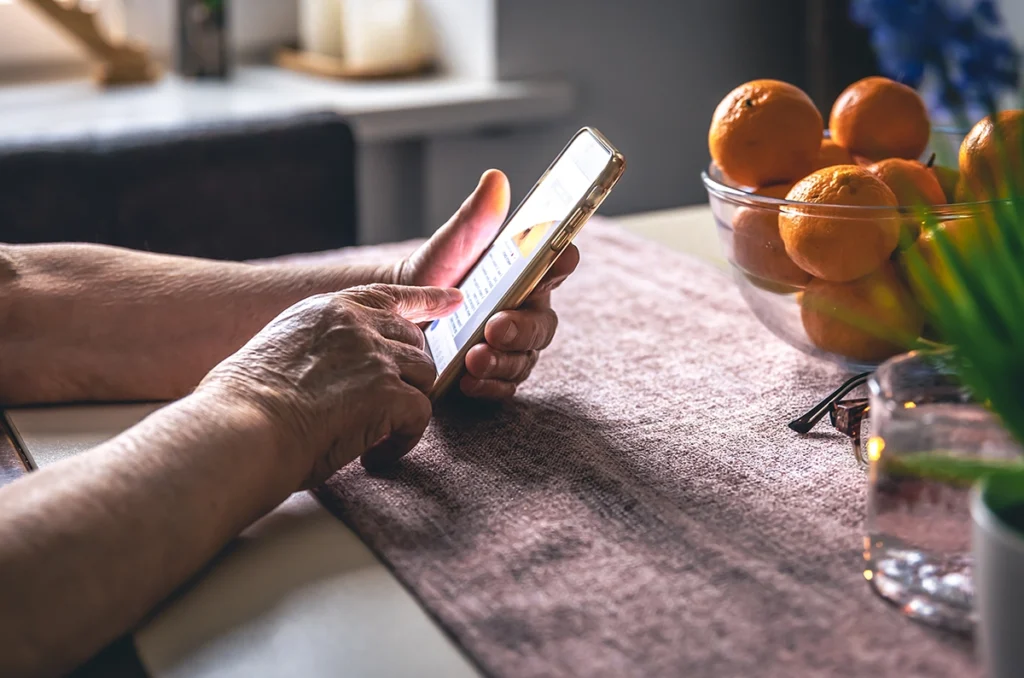
Introducing Genus Care
Genus Care is an all-in-one communications device that simplifies remote care living for elderly. It is more than just a smart digital frame. It has 7 in-built intelligent environmental monitoring sensors that alerts and monitors air quality, sound, touch, humidity, temperature, light and movement supported via the Genus Care App.
The Genus Care elderly monitoring device also has the additional benefit of instant and secure video communication and photo sharing. Ensuring your loved ones are safe and connected.
It’s important to note that these devices should be chosen based on individual needs and capabilities. Consulting with healthcare professionals or occupational therapists can provide valuable insights into which devices are most suitable for specific situations. With the right assistive devices, the elderly can maintain their independence, stay connected, and age gracefully.

